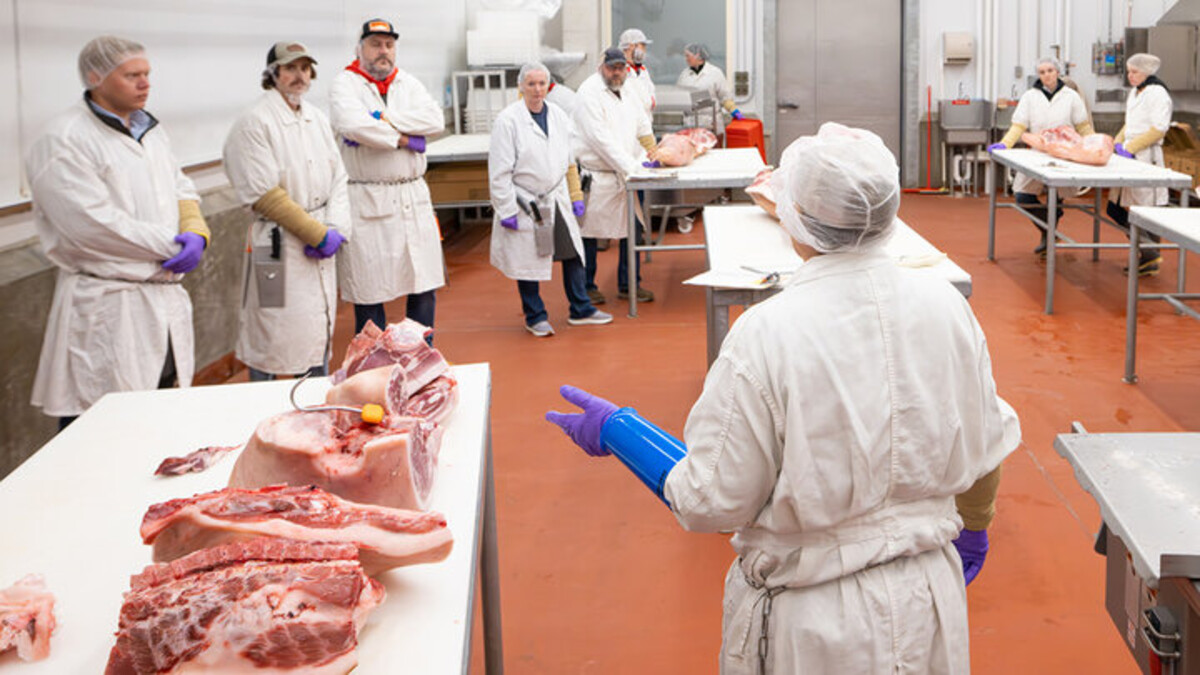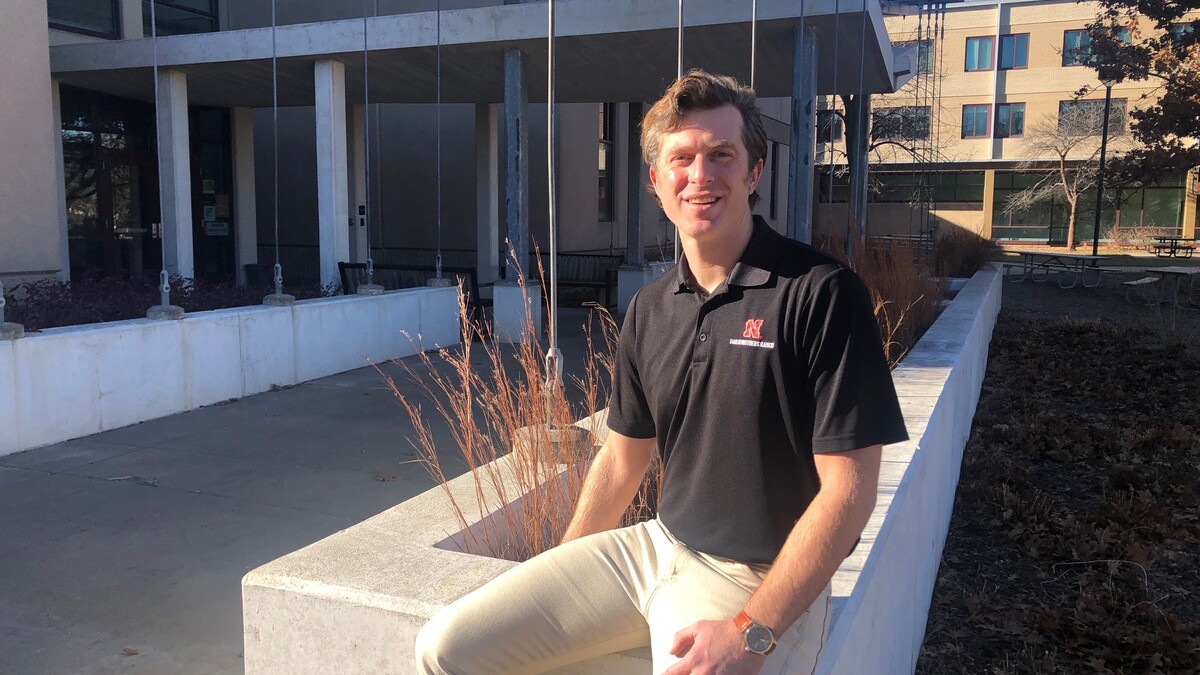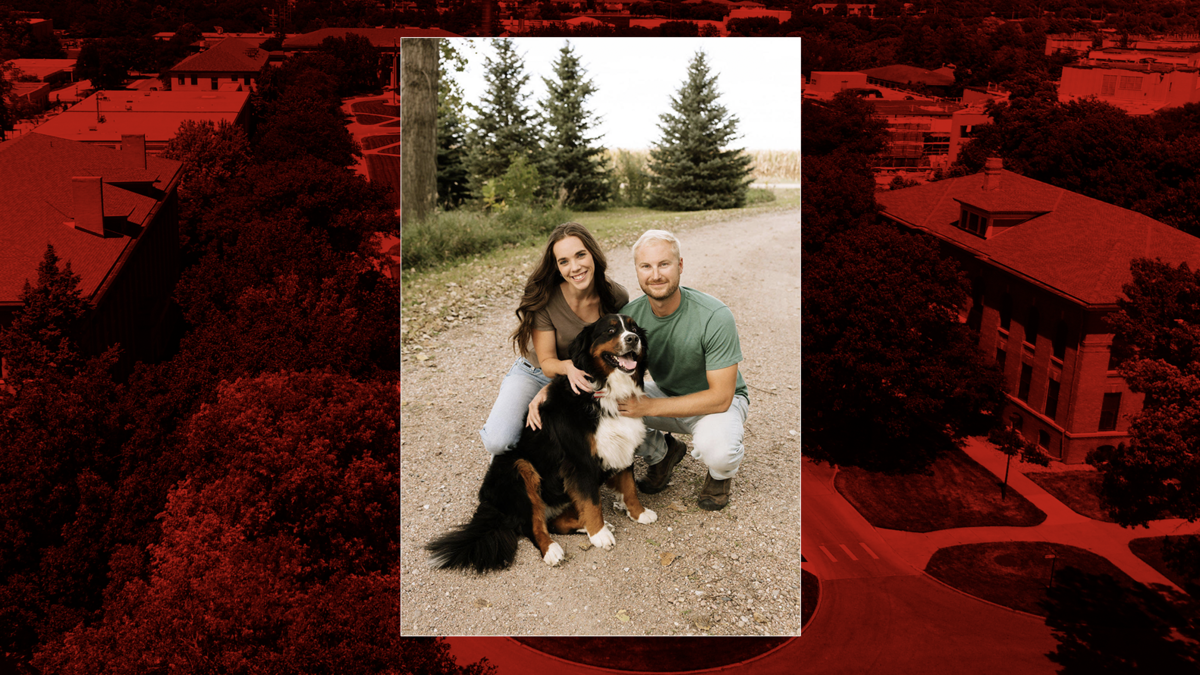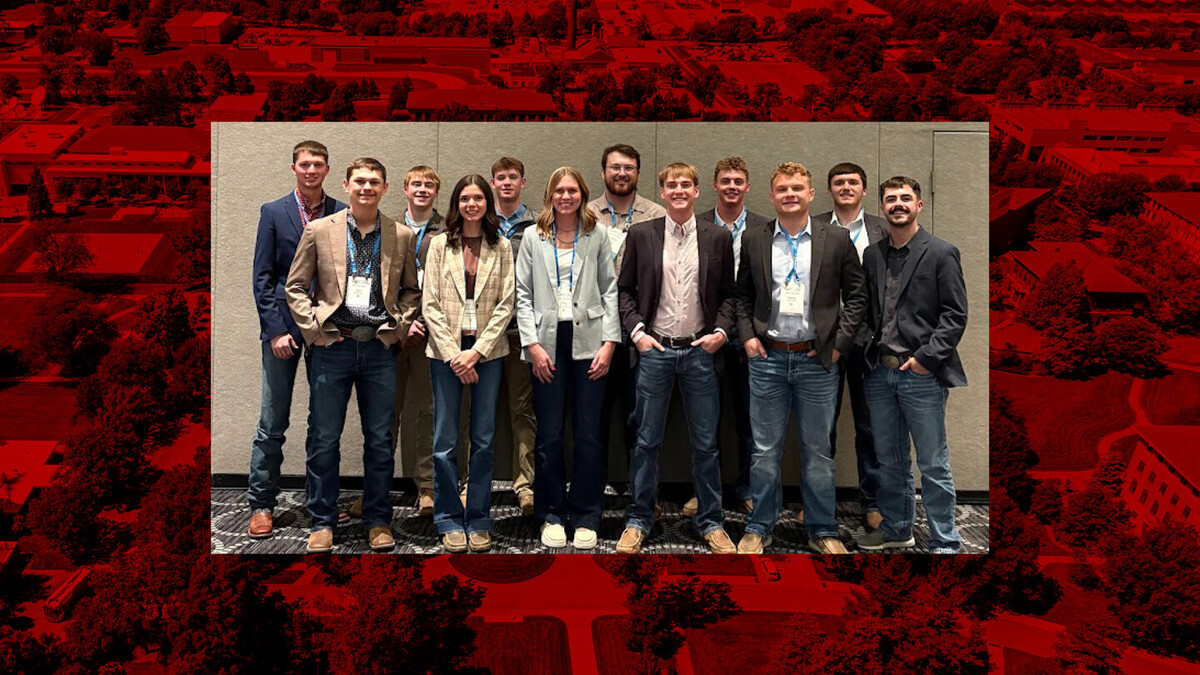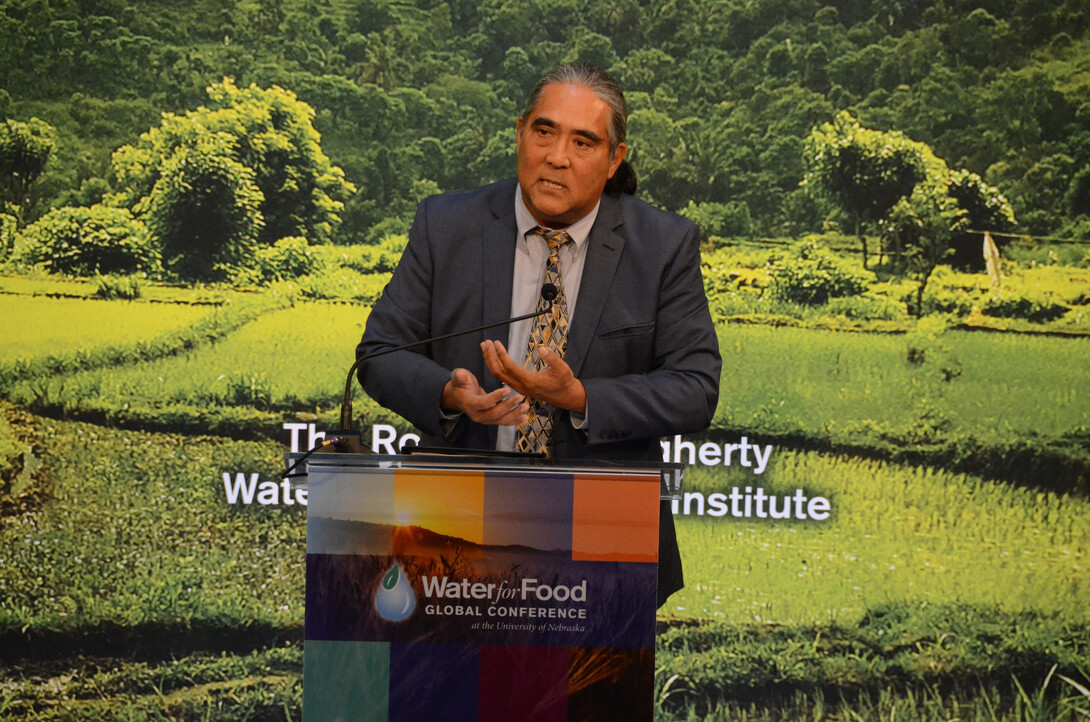
April 13, 2017
Lincoln, Neb. — A.G. Kawamura wants to start a new dialogue about agriculture. California’s former secretary of agriculture feels that it’s time for everyone to come together and recognize that the clock is ticking, and we need to become more resilient when it comes to water and food security.
“When you live in a state of abundance, consumers tend to think food is a right,” he said. Kawamura delivered the final Heuermann Lecture of the 2016-17 season April 12 at Nebraska Innovation Campus.
“Food is not a right. Food is a privilege,” Kawamura said.
Today’s abundance has led to some groups challenging the agricultural industry on the impact it has on the environment and one’s health. This conflict has made the already difficult task of feeding the world even more complex. Kawamura feels that a new dialogue is needed so everyone can begin to understand the obstacles to feeding a growing population.
He shared historical examples of how the view of agriculture has evolved through history. One example was of a time in Israel when the food and water supply in the region was limited and the country was in a state of survival. This caused everyone to revert all of their focus and energy to building resiliency in the critical systems needed to survive. While the United States is not facing such extreme constraints today, Kawamura thinks it’s time to rally around a common goal of water security and food security like Israel did, because those systems are critical for a sustainable future.
“Successful agriculture sustains civilization,” he said. “We don’t have to talk about what kind of agriculture it is, as long as it’s successful. That should be our focus right now.”
A third-generation fruit and vegetable grower and shipper from Orange County, Kawamura was California's secretary of agriculture from 2003 to 2010. He is co-chair of Solutions from the Land, a project that is developing a sustainable roadmap for 21st century agricultural systems. He is also a national steering committee member of "25x25" a renewable energy coalition of farm, forest, conservation and environmental leaders focused on the multiple benefits and contributions that can be delivered from the agricultural and rural sectors of America.
As a progressive urban farmer, Kawamura has a lifetime of experience working within the shrinking rural and urban boundaries of southern California. He has stayed involved in policy areas of education, hunger and nutrition. Through his company, Orange County Produce, Kawamura is engaged in building an interactive urban agricultural exhibit at the Orange County Great Park in Irvine, California. These are just a few examples of how Kawamura is trying to start a new conversation about the rapidly evolving agricultural industry.
“It’s time for a global reset button. We’re in a new age of agriculture,” Kawamura believes. “The pace of new knowledge and new thinking that is taking place is unbelievable.”
The agricultural renaissance, as Kawamura calls it, that is currently taking place is essential if the world is going to meet the demand of feeding a booming worldwide population. He is a big supporter of the food, energy and water nexus and believes it is key for a resilient and sustainable future. The idea of the nexus is that food security, energy security and water security are all linked in a way that any actions in one area will have impacts on both of the others.
“Food, energy and water cannot be looked at as silos,” Kawamura said. “They have to be looked at with the idea that we’re going to create resilience.”
In addition to new technologies and new ways of thinking, education is a critical part of a successful future according to Kawamura. He feels it’s incumbent on those in agriculture to lead the way in educating the public about the challenges and goals facing the world, such as feeding 9 billion people by 2050.
“We need to produce excitement and enthusiasm globally about these goals to get everybody from around the world involved in this outcome we call the future,” he said.
The lecture was held in conjunction with the eighth annual Water for Food Global Conference, which examined the work being done to ensure water for food security from local to global scales. The global conference featured plenary and parallel sessions to explore the research, technology and educational approaches that are advancing water and security for the world.
The Heuermann Lecture series focuses on providing and sustaining enough food, natural resources and renewable energy for the world's people, along with securing the sustainability of rural communities, where the vital work of producing food and renewable energy occurs. The lectures are funded by a gift from B. Keith and Norma Heuermann of Phillips. The Heuermanns are longtime university supporters with a strong commitment to Nebraska's production agriculture, natural resources, rural areas and people.
Lectures are streamed live at http://heuermannlectures.unl.edu and air live on campus channel 4. They are archived after the event and later air on NET2 World.
Jessie Brophy
Institute of Agriculture and Natural Resources
402-472-7080
jbrophy3@unl.edu
Writer - Haley Steinkuhler
